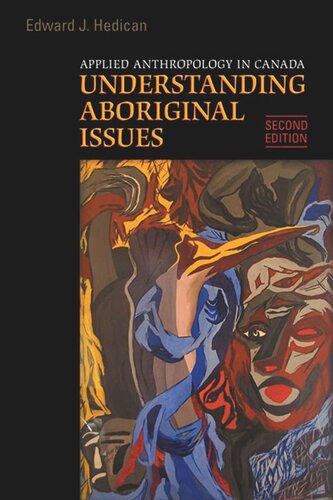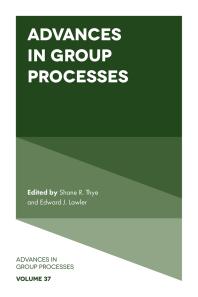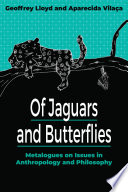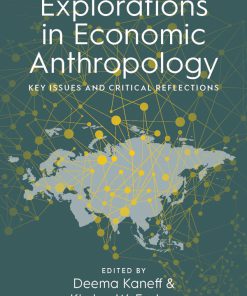Applied Anthropology in Canada Understanding Aboriginal Issues 2nd Edition by Edward J Hedican ISBN 9781442687356 1442687355
$50.00 Original price was: $50.00.$25.00Current price is: $25.00.
Applied Anthropology in Canada Understanding Aboriginal Issues 2nd Edition by Edward J Hedican – Ebook PDF Instant Download/Delivery: 9781442687356 ,1442687355
Full download Applied Anthropology in Canada Understanding Aboriginal Issues 2nd Edition after payment

Product details:
ISBN 10: 1442687355
ISBN 13: 9781442687356
Author: Edward J Hedican
Anthropologists are often reluctant to present their work relating to matters of a broad social context to the wider public even though many have much to say about a range of contemporary issues. In this second edition of a classic work in the field, Edward J. Hedican takes stock of Anthroplogy’s research on current indigenous affairs and offers an up-to-date assessment of Aboriginal issues in Canada from the perspective of applied Anthropology.
In his central thesis, Hedican underlines Anthropology’s opportunity to make a significant impact on the way Aboriginal issues are studied, perceived, and interpreted in Canada. He contends that anthropologists must quit lingering on the periphery of debates concerning land claims and race relations and become more actively committed to the public good. His study ranges over such challenging topics as advocacy roles in Aboriginal studies, the ethics of applied research, policy issues in community development, the political context of the self-government debate, and the dilemma of Aboriginal status and identity in Canada.
Applied Anthropology in Canada is an impassioned call for a revitalized Anthropology – one more directly attuned to the practical problems faced by First Nations peoples. Hedican’s focus on Aboriginal issues gives his work a strong contemporary relevance that bridges the gap between scholarly and public spheres.
Applied Anthropology in Canada Understanding Aboriginal Issues 2nd Edition Table of contents:
1. Introduction
What’s in a Name? Definitions and Terminology
Aboriginal Issues in Canada: Historical Dimensions
Contemporary Aboriginal Issues: An Overview
The Emergence of Anthropology in Canada
Anthropology in Canada after the 1960s
The Scope of the Book
2. Anthropology and Aboriginal Studies
Introduction
The Philosophy of Cultural Relativism
Professional Ethics in Anthropology
Research on Aboriginal Land Claims
Restless Natives?
Anthropology as Image-Maker
Fieldwork: Anthropology as a Close Encounter
Research in Anishenabe Country
Understanding Fieldwork Situations
Learning from Fieldwork Experiences
Conclusion
3. Research Strategies: Advocacy in Anthropology
Introduction
The Advocacy Question in Applied Anthropology
Culture and Commitment
The Notion of Social Responsibility
Advocates and Consultants among the James Bay Cree
Advocacy as Conflict Management
Brokers: Bridging the Culture Gap
The Anti-Advocacy Position
Land Claims and the Advocate Role
Ethical Considerations in Aboriginal Studies
Conclusion
4. The Controversial Side of Applied Anthropology: Notes from Northern Ontario
Introduction
The Whitesand Land Problem
Some Historical Dimensions of the Issue
University Involvement
The Problem of Role Enactment
The Mediator Role
The Facilitator Role
The Animator Role
Conclusion
Postscript
5. Aboriginal Policy Issues: Anthropological Perspectives
Introduction
Anthropological Perspectives on Public Policy
Research on Aboriginal Issues: Some Contradictions
In Anthropology’s Defence
The Corridors of Power
The Land-Base Problem
Country Food Production: The Hidden Native Economy
Hunting and Wage Work: The Economic Balancing Act
Who Owns the Wilderness?
Algonquin Provincial Park
Anthropology and Aboriginal Rights
The Royal Commission on Aboriginal Peoples
The Ipperwash Inquiry (2007)
Appropriation of the Stoney Point Reserve
The Occupation of Camp Ipperwash
Entering Ipperwash Provincial Park
The Shooting of Dudley George
Recommendations of the Ipperwash Inquiry
Discussion of the Ipperwash Inquiry Recommendations
Conclusion
6. Development in Aboriginal Communities: Economic Strategies and Policies
Introduction
Views on Development
Development and the Politics of Dependency
Native Women and Development Issues
Prospects for Change
The Service Sector Economy
Development among the James Bay Cree
The ‘Cultural Dependency’ Question
Conclusion
7. The Political Context of Aboriginal Issues: Self-Government and Institutional Structures
Introduction
Institutional Frameworks
Education Cutbacks: Policy Dilemma or Institutional Neglect?
An Institutional Problem: The Non-Reserve Native Community
The Problem of ‘Ethno-Status’ Distinctions
The Anthropologist and Aboriginal Issues
Municipal Incorporation: Prospects for Change
The Northern Communities
The Self-Government Issue
Administrative Control and Self-Government
The Politics of Encapsulation
The Imposition of Non-Indigenous Political Structures
The Municipal Model of Self-Government: The Sechelt Case
Administrative Dependency and Control: The Fort Hope Case
Welfare Colonialism?
Nunavut: Canada’s New Land
The Inuit and Aboriginal Issues
Conclusion
8. The Ethnopolitics of Aboriginal Status and Identity
Introduction
The Concept of Indianness
Canada as a Multicultural Society
The Politics of Ethnic Identity
Bill C-31 Update
Aboriginal Ethnic Identity
Natives as Ethnics?
Racism versus Ethnicity
Aboriginal Ethnopolitics in Canada
The Metis Experience
The Micmac: Negotiating Ethnic Identity
Reclaiming Aboriginal Identity: Education and Community Change
Conclusion
9. Applied Anthropology: Challenges for Today and Tomorrow
Introduction
Ethics, Advocacy, and Aboriginal Issues
Research, Policies, and Community Development
Aboriginal Studies in Anthropology
Aboriginal Self-Determination
Conclusion
References
Index
People also search for Applied Anthropology in Canada Understanding Aboriginal Issues 2nd Edition:
applied anthropology introduction
applied anthropologists practice
phd applied anthropology
applied anthropology questions
applied anthropology quizlet
Tags: Edward J Hedican, Applied Anthropology, Canada Understanding, Aboriginal Issues
You may also like…
Politics & Philosophy - Anthropology
Cultural Anthropology An Applied Perspective 11th Edition Gary Ferraro Andreatta Susan
Biology and other natural sciences Biostatistics
Applied biostatistics for the health sciences Second Edition Richard J. Rossi
Business & Economics - Professional Finance
Excellence In Fundraising In Canada Volume 1 Second Edition Guy Mallabone
Uncategorized
Engineering - Environmental
Politics & Philosophy - Anthropology
Uncategorized











